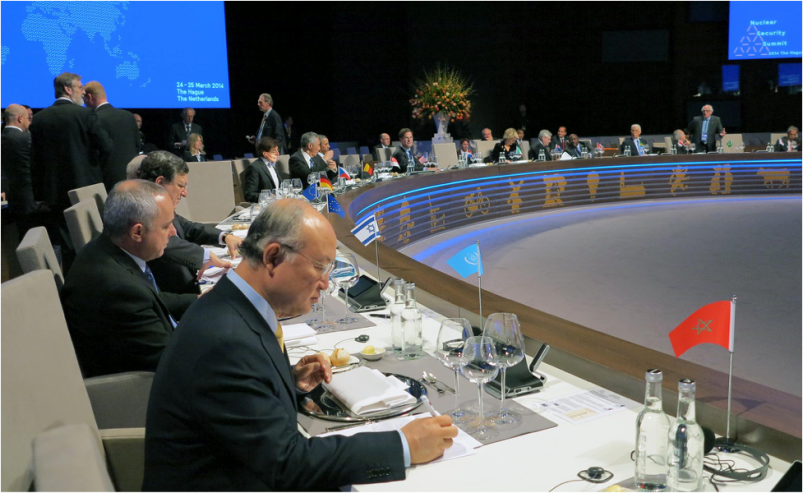On April 1, world leaders will gather in Washington, DC for the fourth and final Nuclear Security Summit, which concludes a pivotal process started by President Obama in 2010 to intensify global efforts to prevent nuclear terrorism. With the summits coming to a close along with Obama’s presidency, it could be a long time before the next international meeting of top leaders devoted solely to nuclear security.
Here are 5 reasons why the upcoming summit is so important.
Any unsecured nuclear material is a threat everywhere
In the wrong hands, even a little nuclear material could cause devastation anywhere on earth. A simple nuclear bomb requires only 55 pounds of highly enriched uranium (HEU) or 18 pounds of plutonium—and roughly 3 million pounds of HEU and 1 million pounds of separated plutonium exist around the world. For plutonium, more is being made every year.
But bomb-grade materials aren’t the only danger. Any highly-radioactive material—the kind used in cancer treatment, energy exploration, and food safety around the world—could be spread by conventional explosives in a “dirty bomb,” causing widespread chaos. Alarmingly, due to often-weak security, these materials regularly go missing—and aren’t always recovered.
There aren’t any mandatory international standards for securing all nuclear materials

Under the current system, every country basically gets to make up its own rules for securing nuclear materials—and none of them have to tell anyone else what those rules are, or be held accountable for following them.
The nuclear security treaties that are in force are limited in scope and effectiveness. The Convention on the Physical Protection of Nuclear Material was written for a pre-9/11 world, and isn’t fully effective because a critical amendment to bring it up to date hasn’t yet been ratified by enough countries. And the International Convention for the Suppression of Acts of Nuclear Terrorism is about responding to terrorism—not preventing it.
The Nuclear Security Summits have been important but inadequate
President Obama and other world leaders have gone on record saying nuclear security should be a top priority—and previous Nuclear Security Summits have made some progress securing and removing weapons-grade materials.
But it still seems like every other week, there’s another news article about missing nuclear materials or dirty-bomb plots—in Iraq, Russia, Moldova, even Belgium. In 2014 alone there were 170 incidents when nuclear or radiological materials were lost, stolen, or out of government control—and 70% of those incidents occurred in the U.S., Canada, and France.
So while our leaders talk a great game about the importance of nuclear security, there are still huge gaps in the nuclear security safety net.
Experts agree on what we need to do next
A coalition of international experts has come together around a set of 5 priorities for this year’s Nuclear Security Summit, calling for a system that is:
- Comprehensive, covering all nuclear materials everywhere;
- Open, with countries sharing non-sensitive information to build international confidence;
- Rigorous, with measurable goals and standards for all countries;
- Sustainable, capable of adapting to new threats and opportunities; and
- Reduced, eliminating and shrinking dangerous nuclear material stockpiles.
These five priorities are the road map that will make our world much safer today and for generations to come.
We need to demand that our leaders act

We don’t have the strong international system we need for nuclear security.
Our leaders know what they need to do: follow the 5 Priorities and make us all safer.
We can’t wait anymore for our leaders to lead. We’re demanding they take action. Here are some ways to make our voices heard:
- Take a #5Priorities selfie to show that the movement is worldwide.
- Write, call, and @tweet your leaders telling them that the world can’t wait for nuclear security.
- Follow FMWG on Facebook and Twitter and check out 5priorities.org for the latest updates.






